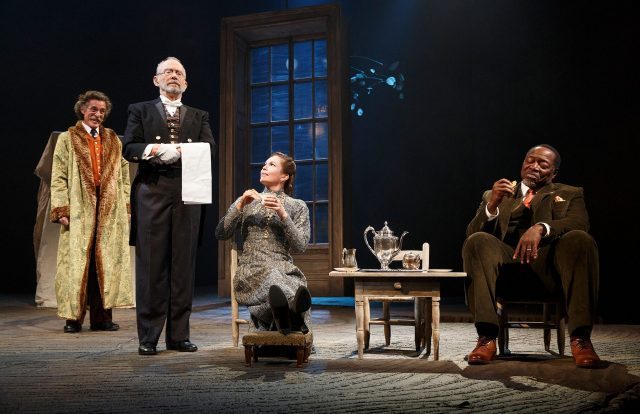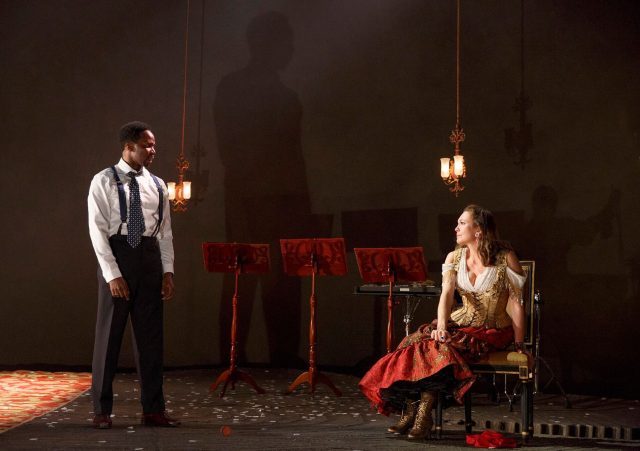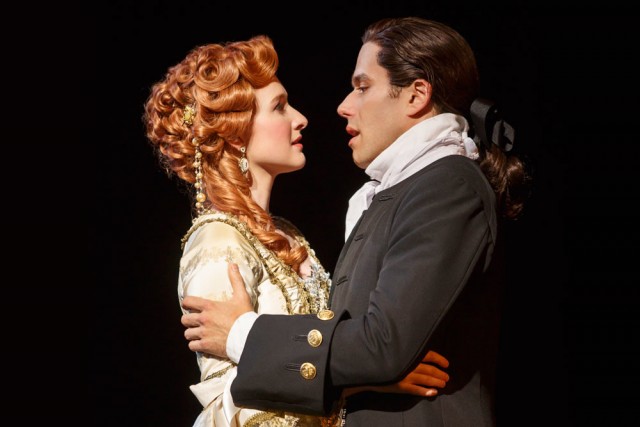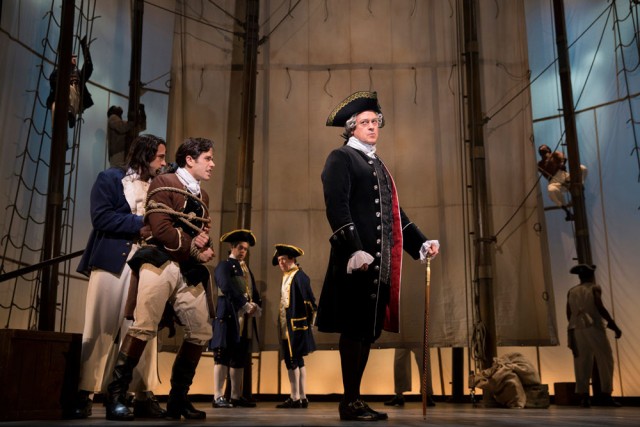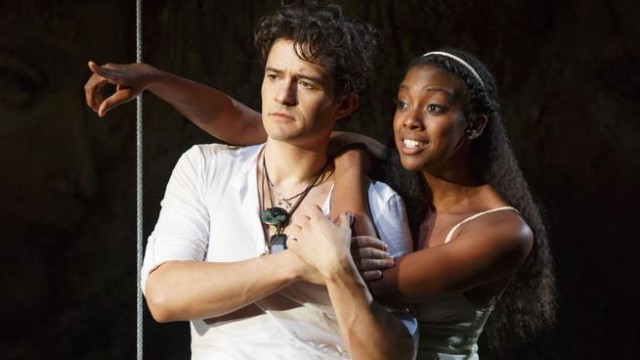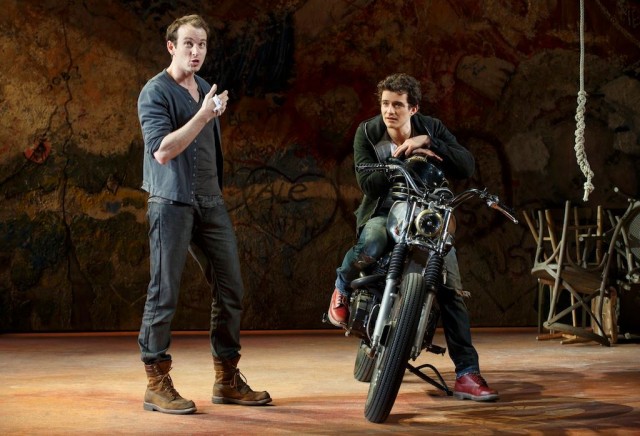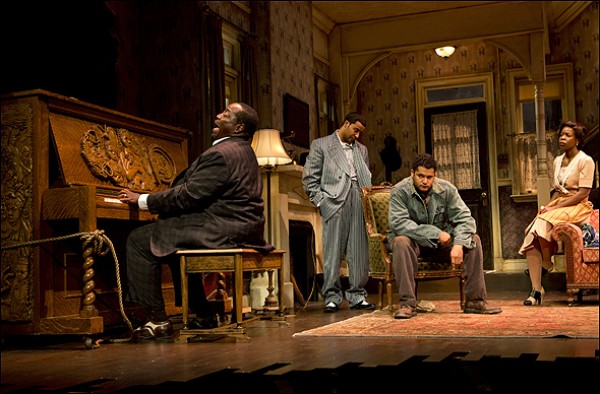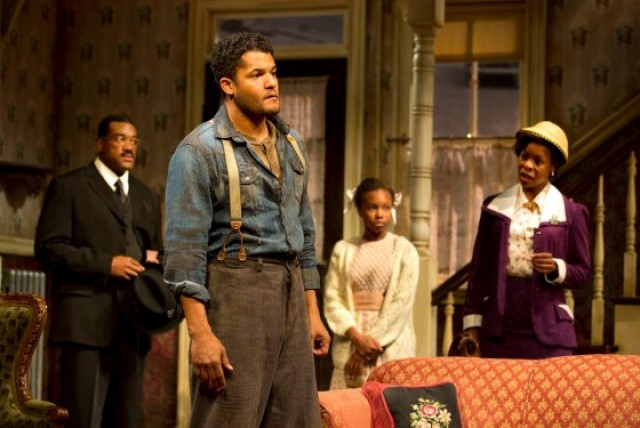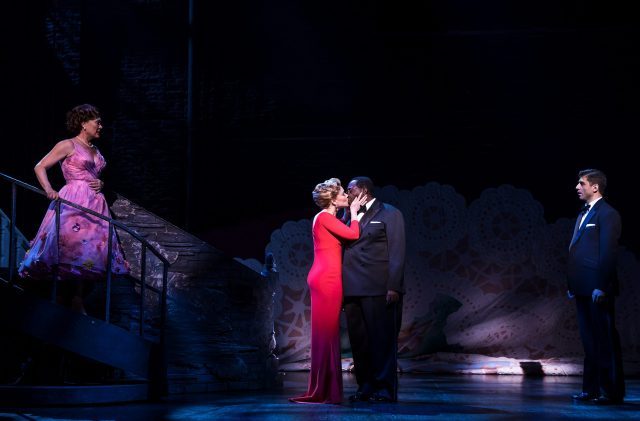
Prince of Broadway features three songs from Follies (photo by Matthew Murphy © 2017)
Manhattan Theatre Club at the Samuel J. Friedman Theatre
261 West 47th St. between Broadway & Eighth Aves.
Tuesday – Sunday through October 22, $89-$165
princeofbway.com
www.manhattantheatreclub.com
Less is certainly not more in Manhattan Theatre Club’s production of the surprisingly slight Prince of Broadway. Continuing at the Samuel J. Friedman through October 22, the show is a tribute to legendary icon Hal Prince, who has won twenty-one Tony Awards during a grand career going back to his days as an assistant stage manager in 1950 through directing and/or producing many of the greatest musicals in Broadway history. Prince himself directs the talented cast of nine — Chuck Cooper, Janet Dacal, Bryonha Marie Parham, Emily Skinner, Brandon Uranowitz, Kaley Ann Voorhees, Michael Xavier, Tony Yazbeck, and Karen Ziemba — who all portray him, glasses on top of their heads, as he discusses brief, mostly unilluminating snippets from his history, many of them self-aggrandizing platitudes that serve as introductions to some of the numbers, although there are a few choice tidbits, including his meeting Stephen Sondheim. The crew is just about as good as it gets, with a book by two-time Tony nominee David Thompson, arrangements and orchestrations by two-time Tony winner Jason Robert Brown, sets and projections by Tony winner Beowulf Boritt, costumes by six-time Tony winner William Ivey Long, lighting by two-time Tony winner Howell Binkley, and codirection and choreography by five-time Tony winner Susan Stroman. And the show has several memorable moments, including Cooper bringing the house down with “If I Were a Rich Man” from Fiddler on the Roof, Parham belting out the theme song from Cabaret, Xavier and Dacal camping it up on “You’ve Got Possibilities” from It’s a Bird…It’s a Plane…It’s Superman, and Skinner delivering a moving “Send in the Clowns” from A Little Night Music. But as Ziemba sings as Fräulein Schneider from Cabaret, “So what?”
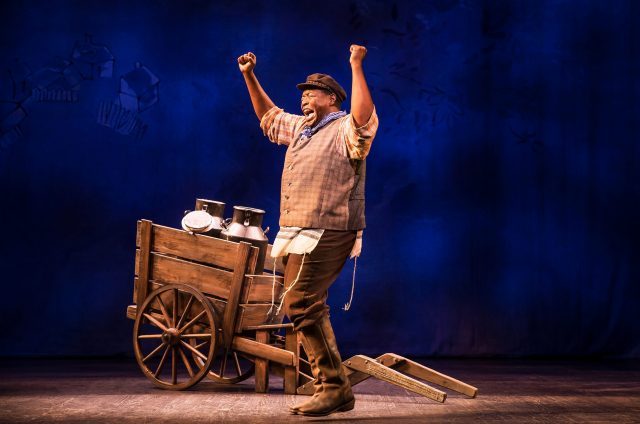
Chuck Cooper brings the house down as Tevye from Fiddler on the Roof (photo by Matthew Murphy © 2017)
Too many of the production numbers are not introduced by name; how many people are likely to know that “This Is Not Over Yet” is from Parade? Prince’s specific contributions, whether director or producer, are not indicated onstage (only in the program), so it is often difficult to grasp how much we’re seeing is from the man himself. With limited or no background information, most of the songs exist in a kind of vacuum, where the audience doesn’t know enough about the characters to get involved in their tales, except for the numbers that have more exposition in them. Even such beloved songs as “Something’s Coming” and “Tonight” from West Side Story feel lost amid the other hits and non-hits; it’s not fair for Stroman and Prince to assume the crowd is already familiar with the songs, a disservice particularly to younger generations or newcomers of any age to musical theater. And although Prince worked on nearly sixty shows, a mere sixteen are represented here, with three or four songs from certain musicals; it would have been fascinating to see tunes from such less-well-known works as Zorba, A Family Affair, Flora, the Red Menace, or even A Doll’s Life, which closed after five performances, instead of multiple numbers from Evita and The Phantom of the Opera. An earlier version did have other songs, including “All I Need Is One Good Break” from Flora, but numerous delays and financial issues led to many changes. (For example, in March 2012 it was announced that the Broadway production would open that November with Sebastian Arcelus, Linda Lavin, Richard Kind, LaChanze, Shuler Hensley, Sierra Boggess, Josh Grisetti, Amanda Kloots-Larsen, Daniel Breaker, Caroline O’Connor, David Pittu, and Skinner.) In a program note, Prince writes, “I doubt if anyone today can duplicate the life I’ve been lucky enough to live.” That’s very likely true, but the eighty-nine-year-old master deserves better than Prince of Broadway.
